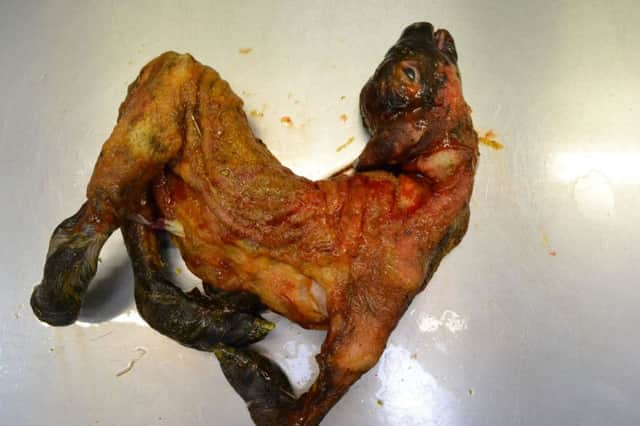Schmallenberg vaccination urgent


In order to protect sheep for the next pregnancy sheep farmers should consider their single vaccination as soon as possible.
Aurelie Moralis, Veterinary Consultant with Zoetis points out that the disease is spread in the summer months by the Culicoides midges, which are widely present across Europe and move easily between farms and regions allowing rapid and extensive spread of infection. The spread of infection therefore occurs predominantly when biting midges are most active between May and October; however it is often not until calving or lambing that the disease is discovered.
Advertisement
Advertisement
The disease can affect cattle and sheep and veterinary advice is where possible protection by vaccination plus an effective insecticide against the Culicoides midge such as the deltamethrin in Fly & Lice Spot On™ in the spring, summer and autumn months.
Whilst vector control methods are an important part of a Schmallenberg Virus control strategy, and will certainly be useful at farm level, alone they are unlikely to be successful at controlling disease over a large area, because of the behaviour and movements of the midges. Therefore vaccination alongside an effective insecticide is the most effective way to protect your flock/ herd against SBV.
Zulvac® SBV is the only vaccine licensed for Schmallenberg and is licensed for active immunisation of cattle and sheep from 3.5 months of age to reduce viraemia associated with infection of SBV. Cattle require two doses given three weeks apart every 12 months, whereas female breeding sheep require only one dose given at least 14 days prior to breeding. The duration of immunity from vaccination in cattle is 12 months, whilst in sheep the vaccine will protect for a period six months.
SBV is now considered to be an endemic disease in the UK. Results from AFBI laboratories have indicated that the disease has affected both calves and lambs in Northern Ireland. AFBI laboratories have reported 28 cases of SBV in lambs in all counties in Northern Ireland and one case was reported on a stillborn calf in County Fermanagh.
Advertisement
Advertisement
In England there have been anecdotal reports of SBV causing deformities in lambs born during this lambing season. The first confirmation of SBV by PCR was made in March this year on a lamb presented with limb deformities from Cornwall.
Discussion around protection against SBV should therefore form part of the flock/herd health planning which farmers do with their vets who are in an excellent position to know what the SBV situation is within your area as many of the deformed lambs and calves will need veterinary intervention at lambing or calving.